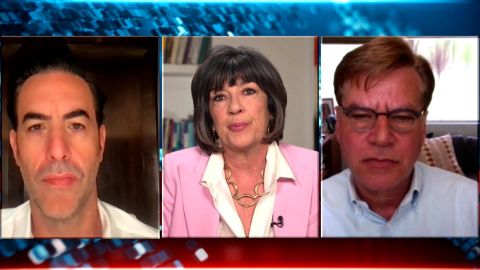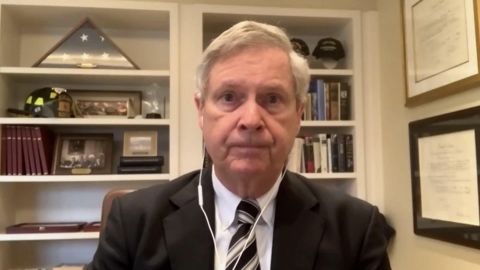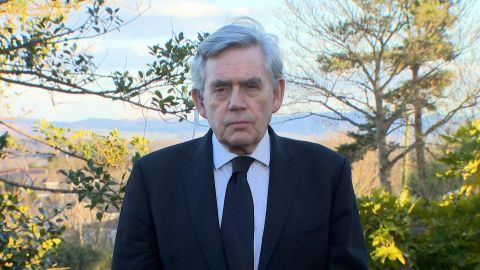Read Transcript EXPAND
GORDON BROWN, FORMER BRITISH PRIME MINISTER: Well, that’s a small price to pay, because nobody is safe anywhere until everybody is safe everywhere. And we have got 70 percent of adults vaccinated in the United Kingdom, but only 1 percent of adults in sub-Saharan Africa. And as long as the rest of the world is not vaccinated, whether it’s 2022 or 2023 before they are, then the disease will continue to spread, it will mutate, there will be new variants. And, of course, it threatens both lives and livelihoods in every country of the world. So it’s not a choice between vaccinating at home and vaccinating around the world. We have got to do both. Now, the price, $30 billion a year, very small price to pay. It’s far less than what has been lost in output. It’s far smaller than what we had to do in 2009, when we had a trillion stimulus at the G20. President Biden’s got a $2 trillion stimulus in America; $30 billion could be paid by America itself. But I’m suggesting that we burden-share right around the world. And, of course, the richest countries, the G7, should pay the lion’s share, about 60 percent of the cost that needs to be met.
CHRISTIANE AMANPOUR: How would you make this happen if you were prime minister? You mentioned the financial crisis. You were prime minister then. You hosted G7s and other G meetings. And this crisis, COVID, has been marked by its complete lack of global coordination. It’s like each person for themselves, each country for themselves, each state for themselves. What would you say to your fellow leaders in June at the G7 to make this happen?
BROWN: Yes, last year, we wasted the chance to cooperate. We didn’t cooperate on exchanging information, on getting the vaccine out. Of course, we didn’t cooperate on equipment and ventilators. This year, we have got a real chance. President Biden has said he wants to contribute. The Europeans, I think, realize that they have got to be part of a collective effort. And then China, Russia, the other countries should come in. I think the starting point is the G7 meeting, June the 13th, United Kingdom, Boris Johnson chairing. Now, if he can do what we tried to do in 2009, and bring together the major countries, and instead of saying, we’re going to have a whip round to raise money, which is what has happened in the past in the last few months, what you say is, look, here’s a fair system of burden-sharing. It’s based on what you contribute to the United Nations’ peacekeeping. It’s similar to what was done when we eradicated smallpox in the 1960s, when there was a levy on World Health Organization members. So bring people together, America paying roughly 25 percent, Europe roughly 25 percent, G7 60 percent, G20, as a whole, 85 to 90 percent, the oil states, Scandinavia. Then you have got some other countries who would be prepared to contribute. And then you can say to the poorer countries, we can get on with this vaccination program.We solve the problem of discovery with brilliant science. We will solve the problem of logistics with manufacturing. We have got to know solve the problem of finance.
About This Episode EXPAND
Gordon Brown; Aaron Sorkin; Tom Vilsack; Sacha Baron Cohen
LEARN MORE


